UBC Four Years Doctoral Fellowship Program (4YF) 2025 (Fully Funded)
Pursue your studies in Canada. Good news! University of British Columbia Scholarship is currently open. In this article we will explain in detail about this scholarship, its benefits and step by step application process.
University of British Columbia (UBC) Four Years Doctoral Fellowship Program (4YF) 2025-2026 is a fully funded scholarship for international students. This scholarship is offered for Doctoral studies. This scholarship is valued at $18,200 stipend plus full tuition coverage for four years.
University of British Columbia, Canada, invites applications for the Four Years Doctoral Fellowship (4YF) Program which is awarded to attract and support outstanding domestic and international PhD students, and provide those students with stable, base-level funding for the first four years of their PhD studies and research.
Also Apply for Chinese Provincial Government Scholarships
The Four Year Doctoral Fellowship (4YF) program will ensure UBC’s best PhD, DMA, and MDPhD students are provided with financial support of at least $18,200 per year plus tuition for up to four years of their Doctoral studies. This program allows UBC to continue to attract and support outstanding domestic and international Doctoral students, and provide those students with stable, base-level funding for their Doctoral studies and research.

Scholarship Summary
- Level of Study: Doctoral (PhD)
- Institution: University of British Columbia
- Study in: Canada
- Program Period: Four Years
- Deadline: No application deadline (Check Program specific deadlines here )
Scholarship Coverage
University of British Columbia Four Year Doctoral Fellowship (4YF) Program provide the recipient up to $18,200 stipend plus full tuition coverage for four years.
Eligibility Criteria for University of British Columbia Doctoral Fellowship
To be eligible for University of British Columbia Four Years Doctoral Fellowship (4YF) Program, these points should be considered:
- Required Languages: English
- Eligible Countries: All world countries.
- Four Year Fellowships may be held by domestic and international students. In general, the fellowships are offered to students beginning their first year of PhD studies, but may be offered to continuing PhD students.
- 4YF funding may be offered for up to four years, but the duration of funding may be less in some circumstances (please refer to the 4YF Guidelines for details).
- In all cases, funding is subject to satisfactory academic progress.
- Students holding the following Tri-Agency awards automatically become 4YF designates: Vanier Scholarships, Doctoral Canada Graduate Scholarships (CGSD), CIHR Doctoral Research Awards, NSERC Doctoral Postgraduate Scholarships (PGSD), and SSHRC Doctoral Fellowships. Doctoral students who obtain Tri-Agency scholarships may be eligible for 4YF tuition coverage and will receive 4YF stipend and tuition support once their external scholarship funding ends, to the end of the fourth year of PhD studies.
- Other major external scholarship winners who are selected as 4YF designates may be eligible for 4YF tuition coverage and will receive 4YF stipend and tuition support once their external scholarship funding ends, to the end of the fourth year of PhD studies.
Also Apply for Fully Funded MEXT Scholarship
How to Apply for University of British Columbia Doctoral Fellowship?
Please follow the following instructions to apply for University of British Columbia Four Years Doctoral Fellowship Program:
- To be considered for Four Year Fellowship funding, students submit an application for admission to the appropriate graduate program at UBC.
- All PhD applicants offered admission are automatically considered for 4YF funding.
- Each graduate program is allocated a number of Four Year Fellowships each year. Graduate programs review their incoming and continuing students and offer Four Year Fellowships to their very best students, with priority given to incoming students.
- Graduate programs notify the Faculty of Graduate Studies which students have been chosen to receive a Four Year Fellowship by submitting a signed University Award Recommendation Form, listing award number 6456.
- It is not necessary to list an award amount.
- Recommendation forms should be submitted at least eight weeks before the requested 4YF start date.
Subscribe to our YouTube channel for step by step Application process
To know more about University of British Columbia (UBC) Doctoral Fellowship Canada, please visit the official website:
Official Website
For more scholarships in Canada, click here .

We acknowledge that the UBC Vancouver campus is situated on the traditional, ancestral, and unceded territory of the xʷməθkʷəy̓əm (Musqueam).
- Director’s Message
- SPPH Leadership
- Career Opportunities
- Apply Online
- Certificate Programs
- Outdoor Air Quality, Health and the Air Quality Health Index (AQHI)
- Tropical and Geographic Medicine 2024
- SPPH Featured Courses
- Graduate Programs Overview
- Continuing Education
- Master of Health Administration (MHA)
- Master of Public Health (MPH)
- Master of Science in Occupational and Environmental Hygiene (MSc OEH)
- Public Health & Preventive Medicine Residency Program
- Doctor of Philosophy (PhD)
- Master of Health Science (MHSc)
- Master of Science (MSc)
- Associate UBC Faculty
- Clinical Faculty
- Adjunct Faculty
- Emeritus Faculty
- Affiliated Faculty
- Postdoctoral Fellows
- Get Involved
- Student Awards and Funding
- Student Resources
- Investing in Students
- Research and Impact
- PhD Research
- Master of Science Research
- SPPH Centres
- SPPH Seminars
- Academic Resources
- SPPH Building Information
- SPPH Policies and Forms
- Tuition and Funding
- How to Apply
- Looking for a supervisor
- PhD Timeline
- Careers and Alumni
Tuition for the PhD program is about $5,400 CAD per year for Canadian students, and about $9,500 for international students. Student fees are about $1,100 CAD per year (fees are in addition to the tuition). Tuition and fees amounts are divided into three approximately equal payments per year, due in September, January, and May. The PhD tuition is the standard degree program rate. The exact amounts are listed in the Academic Calendar (scroll to the bottom of the page). More information about student fees is available from G+PS. We encourage applicants to review the information on cost of living .
Minimum Funding Guarantee
SPPH offers a minimum funding guarantee of $24,000 per year for the first four years in your PhD program. All new full-time admissions to the SPPH PhD program will receive an offer of admission from the program that includes a funding package. The funding package may consist of any combination of external or internal scholarships, research assistantships, teaching assistantships, or income from other academically-related work at UBC (e.g. graduate administrative assistantships, lectureships). At your request, income from other employment in your field of research may be considered part of the funding package, whether the work occurs on or off campus. You may be required to disclose your sources and amounts of university employment income or scholarship funding, as well as other income sources to the graduate program, and you must inform the program immediately of any new or additional funding sources. You will be able to accept or decline the package as a whole or only accept specific components.
See here for full details.
Awards, Graduate Assistantships, & Teaching Assistantships
The PhD program recognizes that SPPH and UBC are situated on the traditional, ancestral, and unceded territory of the xʷməθkʷəy̓əm (Musqueam). In partial recognition of the past, present, and future benefits that all members of the SPPH community receive from the use of this land, the PhD Program reserves departmental funding to support indigenous student(s) in their first four years of PhD study. Indigenous applicants are encouraged to contact the program for more information about specific supports for Indigenous students at UBC, such as the Indigenous Graduate Fellowships .
The PhD program encourages students to apply for scholarship funding. Major funding competitions include the Vanier Scholarship , the UBC Affiliated Fellowships or the Canada Graduate Scholarships-Doctoral Program (CGSD, this competition includes CIHR Awards). A list of other funding opportunities is available on the G+PS website: Award Opportunities . Applicants are encouraged to apply for funding. Applicants may apply for the Vanier Scholarship, Affiliated Fellowships, CGSD, and Spring Graduate Awards before they begin their studies.
Graduate research assistantship (GRA) positions are normally obtained through supervisors. Students can also apply for open positions listed on the SPPH website or via the UBC WorkLearn program . Teaching Assistant (TA) positions for SPPH are also posted on the SPPH website . Please note that most students do not TA in their first year, but will TA graduate courses after they have taken them. TA positions in other departments may also be open to PhD students.
- Before You Apply
- When You Apply
- After You Apply
- FAQ & Contact
- Admissions Blog
- Visiting Electives
- Program Overview
Awards, Financial Aid & Research Funding Opportunities
- Research Forum & Open House
- Publications
- Contact Student Affairs
- Health & Wellbeing
- Career Planning
- Academic Support
- Indigenous Students
- Safety & Emergency Management
- Mistreatment Help
- Program Sites
- Integrated Community Clerkships
- Student Research
- Medical Education Research & Scholarship Requests
- Teaching Opportunities
MD/PhD Program

Supporting tomorrow’s clinician-scientists
MD/PhD Tuition
The 2021/2022 tuition is $5,404.62 per year, payable in 3 instalments of $1801.54 per year for the first six years, reduced to a single continuing fee of $2328.03 per year in each subsequent year. This fee is charged in place of, rather than in addition to, the MD-only program tuition fee (currently $19,218.98 per year), representing a very significant savings.
MD/PhD Studentships
All MD/PhD students receive an annual student stipend through the MD/PhD Program (effective September 2021, the minimum annual stipend is $27,000, renewable each year for a maximum of 6 years and four months). Students are still required to apply for funding from external granting agencies such as the Canadian Institutes of Health Research (CIHR), Heart and Stroke Foundation, Canadian Diabetes Association, Kidney Foundation, Canadian Lung Association and other organizations during the second and/or third years of their MD/PhD Program.
The MD/PhD Program is thankful for stipend funding support from important UBC affiliated partners — BC Cancer, BC Children’s Hospital Research Institute, Providence Health Care Research Institute (St. Paul’s Hospital) and the Vancouver Coastal Health Research Institute.
With the help of the UBC Faculty of Medicine Development and Alumni Engagement Office, the MD/PhD Program receives generous funding support from private donors. These include:
Faculty of Medicine Clinician Investigator Studentship
- . This 6-year MD/PhD studentship is offered to a top-ranked applicant.
- 2. One 6-year MD/PhD studentship is funded by the UBC’s largest endowment for students in the program, thanks to a $6-million donation from the Faculty of Medicine’s first two members —
Constance Livingstone-Friedman and Sydney Friedman
- . This studentship provides on-going support and was first assigned in 2018.
- 3. The Mr. Naotaka Ide MD/PhD Studentship in Dementia/Alzheimer’s Disease Research. The donor is Mrs. Noriko Ide, who set up this studentship in memory of her late husband Mr. Naotaka Ide, to support a student with an interest in dementia, Alzheimer or neurodegenerative disease research. This studentship is made on the recommendation of the MD/PhD Admissions Committee. The first studentship was assigned in 2021.
President’s Academic Excellence Initiative PhD Award ( PAIEPA )
Award values per student per year is approximately: – $1,300 per year for students being assessed full tuition fees – $600 per year for students being assessed continuing tuition fees
All MD/PhD students are assigned this funding in three instalments – each instalment is 1/3 of the total annual amount, assigned at the beginning of each term (September, January and May) of the academic year. No application is required.
Graduate Support Initiative Awards
Graduate Support Initiative Awards (GSI) is a system for funding graduate students. Eligibility for the GSI awards follows existing Graduate & Postdoctoral Studies practices, complete details of which can be found on the G+PS webpage .
Criteria by which GSI funds are allocated in the MD/PhD Program (after prior endorsement from the G+PS) are:
- 1) These funds will be evenly given to incoming MD/PhD students of each academic year in form of an “entrance award” as a recruitment incentive.
Other Funding Opportunities
For a compendium of awards available for UBC graduate students, see see the Awards webpage of the Faculty of Medicine and the Awards and Financial Aid page of the Graduate Studies and Postdoctoral (G+PS) website . For a compendium of opportunities for research funding, please visit the Office of Research Services (ORS) website.
Award Recipients
The UBC MD/PhD students have excellent results in external funding competitions. Congratulations to all the recipients and their research supervisors for the outstanding results!
UBC Four Year Doctoral Fellowship 2021 – Katherine Baillie, Shayda Swann, Joyce Zhang 2020 – Andy An, Katrina Besler, Rohit Singla, Maryam Vaseghi-Shanjani, Li Qing Wang 2019 – Lianne Cho, Daniel Kwon, Wissam Nassrallah 2018 – Jennifer Ji, Mark Trinder, Alvin Qiu 2017 – Paulina Piesik 2016 – Victoria Baronas, Cynthia Ye, Allen Zhang 2015 – Rozlyn Boutin, Parker Jobin, Frank Lee, Adam Ramzy, Michael Skinnider, Jordan Squair 2014 – Andrea Jones, Victor Li, David Twa 2013 – Daniel Woodsworth, Eric Zhao 2012 – Gareth Mercer, Cynthia Min, Julia Pon, Alexander Wright 2011 – Michael Copley, Philip Edgcumbe 2010 – William Guest, Long Nguyen 2009 – David McVea, Clara Westwell-Roper
Vanier Canada Graduate Scholarship
Canada Graduate Scholarship – Doctoral Award (CGS-D) 2021 – Andy An, Luke MacLean 2020 – Reid Vassallo 2019 – Daniel Kwon 2016 – Cynthia Ye 2015 – Jordan Squair 2014 – Cynthia Min 2013 – Daniel Woodsworth
Canada Graduate Scholarship – Master’s Award (CGS-M) 2021 – Lianne Cho, Li Qing Wang 2020 – Katherine Baillie, Dhiraj Mannar 2019 – Andy An, Katrina Besler 2017 – Alvin Qiu 2016 – Rozlyn Boutin, Michael Skinnider 2015 – Victoria Baronas, Allen Zhang 2014 – Parker Jobin, Eric Zhao 2012 – Philip Edgcumbe, Daniel Woodsworth 2010 – Long Nguyen
Canada Graduate Scholarships – Michael Smith Foreign Study Supplement Award 2020 – Mark Trinder 2019 – Michael Skinnider 2018 – Allen Zhang 2017 – Jordan Squair 2012 – Gareth Mercer
CIHR Scriver MD/PhD Scholarship 2010 – Julia Pon 2005 – Fiona Young
Izaak Walton Killam Memorial Pre-Doctoral Fellowship 2021 – Andy An 2017 – Michael Skinnider 2016 – Jordan Squair 2015 – David Twa
- Bachelor of International Economics
- Bachelor of Arts
Opportunities
- Career Services
- Master’s Program
- PhD Program
- Key Contacts
- PhD Students
PhD Job Market Candidates
- Research Streams
- Research Centres
- Policy Discussions
- Woodward Lectures
- Seminar Calendar
- Job Opportunities
- Lima Summer School

Graduate students at the Vancouver School of Economics benefit from our small cohort sizes. Our students develop strong supervision relationships with our high-quality faculty and have extensive opportunities for joint research projects. Our graduate programs offer diverse specializations, and students enjoy a well-organized program of study.
Why Graduate School at the VSE
Training in an array of theoretical, empirical, and policy-related fields, mas secure positions at the bank of canada, statistics canada, kpmg and more, phd graduates achieve academic research positions (tenure-track), master of arts in economics, phd in economics, research and facilities.
- Our research faculty hold grants from the Social Sciences and Humanities Research Council and other funding agencies, resulting in numerous opportunities for experience as research assistants for our MA and PhD students.
- The school houses the Centre for Labour Studies and manages the British Columbia Inter-University Research Data Centre . Hence, unique training opportunities and access to data and computing resources are available to our students.
- Our computer lab is exclusive for graduate students, and our lounge offers a comfortable space to chat and work with colleagues and faculty over coffee.
- The UBC Library collection numbers over one million volumes; in terms of economics material, the holdings are extensive in serial publications and post-war literature.
Student Life
- The Graduate Student Centre , of which all graduate students are members, is nearby and has facilities for social activities.
- The VSE holds regular social activities during the year. These include the grad student welcome party in September and the school’s holiday party in December. Members of our school also participate in intramural sports and the annual Walk for Joy.
Featured News
New phd students at the vse, vse phd student’s paper wins top prize from bank of canada, incoming vse master’s student receives top prizes from sshrc & bank of canada, quick links.

MA program details
Phd program details, application details, current graduate students, ubc graduate and postdoctoral studies, interested in a career in economics, take the next steps in enrolling at ubc..
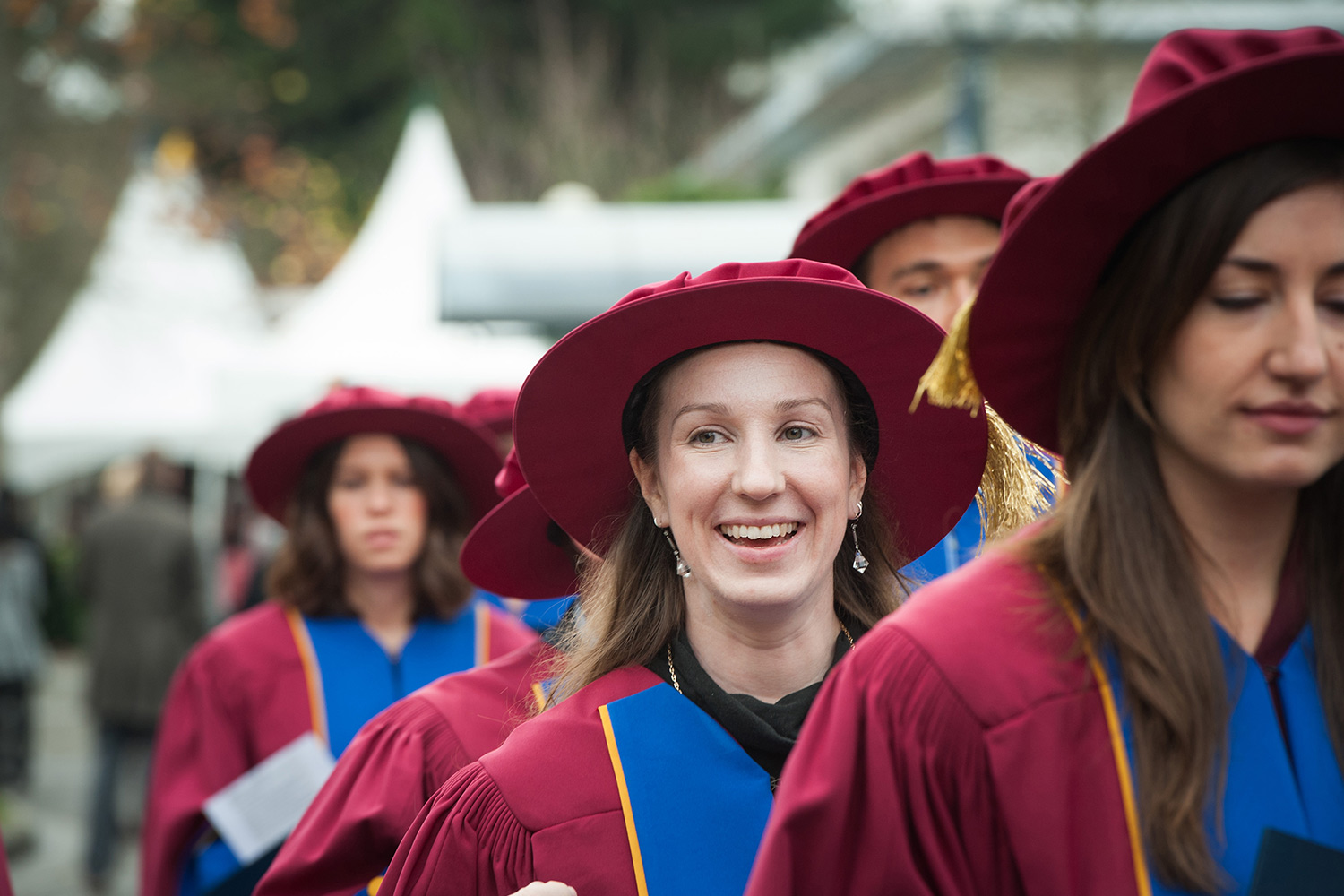
- Academic Calendar
- Campus Services
- Faculties & Schools
- Student Service Centre
- UBC Directory
You are reading the 2024/25 Academic Calendar. The 2023/24 version remains in effect until August 31, 2024 and is available here .
Minimum Funding for Ph.D. Students
The University of British Columbia is committed to ensuring that financial support is provided to all students enrolled in full-time PhD programs.
Students enrolled in a full-time PhD program are assured a Minimum Funding Package for the first four years of full-time study. Funding can be used towards expenses related to the academic program (e.g., tuition, books) as well as general living expenses. Minimum funding is an annual commitment spanning three academic terms per year for four years and is conditional on full-time registration. Full-time students typically devote a minimum of 35-40 hours per week to academic activities (e.g., research, teaching or research assistantship, professional development) related to their studies.
The Minimum Funding Package may be provided through any one or more of the following: internal or external awards and scholarships, graduate academic assistantships, teaching employment (e.g., teaching assistantships, sessional lecturers) and/or research assistantships. At the request of the student, other employment in the field of the student’s research may be considered part of the funding package, whether the work occurs on or off campus (e.g., continuation of part-time nursing practice to maintain professional skills and to understand current research needs in that setting). If a student receives additional funding (e.g., a scholarship, etc.) that elevates the amount of the funding package above the minimum amount per year, support from other components of the funding package may be reduced. The funding package amount is the minimum, and actual student support will be higher in many cases.
The Minimum Funding Package is inclusive of vacation pay and benefits, as well as external awards or sponsorships, if applicable. It does not include the International Tuition Award.
Students must apply for major scholarships as required by their Graduate Program to continue to qualify for the Minimum Funding Package. Students may be required to disclose their sources of university or scholarship funding, as well as other income sources to the Graduate Program and must inform the Program immediately of new or additional funding sources.
The Minimum Funding Package does not apply to students enrolled in a Part-time Doctoral Program or those enrolled in Doctor of Education (EdD) or Doctor of Musical Arts (DMA) programs.
Students must satisfy academic progression requirements and maintain good standing in the program to maintain funding eligibility. See ‘ Academic Regulations ’.
Students who complete their degree requirements are no longer eligible to receive funding. Students who complete degree requirements in less than four years may forfeit a portion of their financial support. Students who withdraw, change to part-time status, or are approved for a leave of absence may no longer be eligible for funding or may be subject to repayment or pro-rating of their funding.
Students transferring from a UBC master’s to a PhD program without completing the master’s program will be eligible for the Minimum Funding Package once enrolled in a full-time PhD program. In line with UBC academic policies, the start of the PhD program for these students will be the date of first registration in the master’s program. Hence, a student who transfers to a PhD after one year of master’s study will be provided with a Minimum Funding Package for the next three years.
The student may decline all or part of the package after acceptance of an offer of admission without any prejudice to their admission. Where the student declines all or part of the Minimum Funding Package at the time of admission, the Graduate Program must submit a written statement to G+PS, signed by the student, which acknowledges that the University has met its obligations. If the student requires a funding package in the future due to a change in situation, the Graduate Program and Supervisor will make their best effort to secure funding, though this might not be possible as funding sources may already be fully committed.
The Minimum Funding Policy will be reviewed annually by the Graduate Council. The Council will decide on any increases in the amount of the minimum funding, and the amount will be published on the Faculty of Graduate and Postdoctoral Studies website . Any annual increases will apply to both new and current eligible doctoral students.
UBC Academic Calendar
2016 1874 East Mall Vancouver, BC Canada V6T 1Z1
UBC Campuses
- Emergency Procedures |
- Terms of Use |
- UBC Copyright |
- Accessibility
Calendar Sections
- Dates and Deadlines
- Academic Year
- Establishment and Constitution
- Campus-wide Policies and Regulations
- Services, Facilities, and Organizations
- Research Units, Centres, and Institutes
- UBC Library
- Faculties, Colleges, and Schools
- Alternative Study Options
- Course Descriptions
- Emeriti Staff
- Enrolment Statistics 2023/24
- Calendar History
- Calendar Archive
PhD in Educational Studies
- EdD in Educational Leadership and Policy
- MA in Educational Studies
- MEd : (ALE) Adult Learning and Education
- MEd : (ALGC) Adult Learning and Global Change
- MEd : (CULE) Curriculum and Leadership
- MEd : (EDAL) Educational Administration & Leadership
- MEd : (HIED) Higher Education
- MEd : (SCPE) Society, Culture & Politics in Education
- MEd : Ts’‘Kel Concentration
- Adult Learning and Education Diploma
- ALE Graduate Certificate Program
- HIED Graduate Certificate Program
- ALE Undergraduate Certificate Program
- Graduate Courses
- Undergraduate Courses
- How to Apply
- FAQ – Prospective Students
- Current Student A-Z
- Funding and Employment
- Student Handbooks
- Program Procedures
- Student Support Network
- FAQ – Current Students
- FAQ – Newly Admitted
- Research Day 2024
- Student Newsletters and Events
- Video Library
- EDST Bulletin
- EDST Students – Forms and Worksheets
- EDST Policies, Procedures and Guidelines
- EDST Blogsite
- Thesis Module Site
- Department Meeting Minutes
- Visitors and PostDocs
- Faculty and University Policies
- Graduate Advisor Memos (FAQ Archives)
- Diverse Career Paths of EDST Alumni
- Indigenous Storywork Resources
- Retired Faculty
- Sessional Lecturers, Adjunct Professors, and Postdoc Teaching Fellows
- Graduate Academic Assistants (GAAs)
- Alumni Profiles
- Graduate Student Profiles
- In Memoriam
- Thesis Module
- Job Postings
Graduate admission
- Requirements

The PhD in Educational Studies is a research-oriented doctoral program for students interested in any of the study areas offered in the department.
Students are required to take three doctoral seminars. All other courses in a student’s program are determined in consultation with faculty. Students in the PhD program typically devote two years to coursework, and two to four years to developing and carrying out a research project designed to make an original contribution to knowledge in the study area.
The university allows doctoral students up to six years to complete program requirements. There is no set number of credits required for PhD programs at UBC.
For further facts and figures about the PhD in Educational Studies, please click here .
Admissions Requirements for Graduate Study
All graduate program applicants in the Department of Educational Studies (EDST) must meet the minimum entry requirements established by the Faculty of Graduate Studies, which oversees graduate work at UBC. Applicants who do not meet the minimum requirements will be considered for admission only in exceptional circumstances.
Admission to the PhD program is highly competitive, based on the pool of applicants considered by the Admissions Committee, and subject to university and departmental requirements and departmental capacities for supervision.
More Info: http://www.grad.ubc.ca/prospective-students/graduate-degree-programs/phd-educational-studies
Please note: Applicants with full-funding from scholarships, fellowships, or alike, are still required to complete the PhD application process in the Department of Educational Studies (EDST). In addition, all applicants will undergo adjudication by the PhD committee to determine admission. To be clear, applicants who bring full-funding with them are not automatically admitted .
General Eligibility
To be eligible for admission to a PhD program at UBC, applicants must hold a master's degree (or equivalent) from an approved institution with clear evidence of research ability or potential; or a bachelor’s degree with one year of study in a master's program with 12 credits of first class average, of which 9 credits must be at the 500-level or above and at least 9 credits must be of first class standing and clear evidence of research ability or potential. (For more detailed admissions requirements, please see the links below).
Graduate and Postdoctoral Studies - Minimum Academic Requirements: Canadian or U.S. Credentials http://www.grad.ubc.ca/prospective-students/application-admission/minimum-academic-requirements-canadian-or-us-credentials
Graduate and Postdoctoral Studies - Minimum Academic Requirements: International Credentials http://www.grad.ubc.ca/prospective-students/application-admission/minimum-academic-requirements-international-credentials
English Requirements
English Proficiency Test Score: Applicants whose degrees are from a university outside Canada in which English is not the primary language of instruction must present evidence of competency to pursue studies in the English language prior to being extended an offer of admission. Acceptable English language proficiency tests for applicants to graduate studies are:
- TOEFL (Test of English as a Foreign Language): Minimum score of 600 (paper version), 250 (computer version), 92 with a minimum of 22 in each component (iTB) is required for admission to all programs in Educational Studies. Visit TOEFL’s website
- IELTS (International English Language Testing Service): Minimum overall band score of 6.5 with no other component score less than 6.0.
- MELAB (Michigan English Language Assessment Battery): Minimum overall score of 81.
The applicants must have an official report of their score on one of these tests sent directly from the testing service to the Graduate Program Assistant, Department of Educational Studies at the address below by the application deadline. Score reports more than two years old will not be accepted.
More Information: http://www.grad.ubc.ca/prospective-students/application-admission/english-proficiency-requirements
Most importantly with regard to a PhD application, please note that among other applicable requirements requested by the Faculty of Graduate Studies and by other UBC competent jurisdictions, as part of such an application you must submit:
- A Statement of Intent (800-1200 words) which clearly shows that your research topic/interest fits within the department in terms of prospective supervisors and areas of interest. Such a statement should also articulate the general research directions you would like to pursue during your program, if admitted. This statement should be 800-1200 words.
- A sample of your writing and engagement with research (maximum 5,000 words without references). The intent is to demonstrate your ability to communicate your ideas and your interests in a clear way. Writing samples typically take the form of an excerpt from a chapter from a masters thesis, a published article, or a substantial scholarly paper
- Entries on your transcript showing evidence of having taken courses on research methods (quantitative, qualitative, mixed methods, ethnographic or philosophical) and research more generally at the Masters level.
Also, while this is not a requirement, it is very important for you to contact at least one faculty member who could be a potential supervisor of your work (has expertise and interest in the area and/or topic you want to focus on) and inquire whether they would be willing to supervise your work ( see list of faculty and areas of expertise at: https://edst.educ.ubc.ca/faculty-staff/faculty ). Even if they do not commit to supervising your work, you could list such a faculty member (one or even two is acceptable) as a potential supervisor when you apply (which would provide further proof of your suitability for the PhD and familiarity with the programmes and areas of expertise of faculty).
In May 2017 the UBC-V Senate approved the establishment of a university-wide minimum funding level for all PhD students. Specifically, all full-time students who begin a UBC-Vancouver PhD program in September 2018 or later will be provided with a minimum funding package equal to $18,000 for each of the first four years of their PhD. The funding package may consist of any combination of internal or external awards, teaching-related work, research assistantships, and graduate academic assistantships.
For more information, see:
https://www.grad.ubc.ca/awards/minimum-funding-policy-phd-students
Doctoral students are also expected to apply for and obtain funding. Our faculty are very supportive in this regard, and are able to help their supervised students build their applications, as well as supporting them by writing letters of appraisal.
If you do not live in Vancouver at present, you may want to consider the cost of living in Vancouver, and obtain further information from the website of the Faculty of Graduate Studies ( http://www.grad.ubc.ca/prospective-students ).
Program Requirements
Program Worksheets are available here: https://edst.educ.ubc.ca/resources/policies/
Doctoral Seminar and Colloquium
There are three required courses in the PhD program.
The first doctoral seminar (EDST 601A) is designed to help beginning students become familiar with the department, policies and procedures related to doctoral studies, and for an examination of critical theoretical traditions and conceptual problems in the social sciences as applied to education.
The second doctoral seminar (EDST 601B) exposes students to positivist, interpretive, historical, and philosophical methods, and a deep understanding of current methodological issues and debates.
The third doctoral seminar (EDST 602) explores what it means to engage in a doctoral experience with particular focus on scholarly writing, preparing for comprehensive exams, and thesis proposals.
Coursework in Specialization
Students in the PhD program are expected to take courses in their specialization so that they are familiar with current theory and research. Courses are selected in consultation with an adviser or program advisory committee.
Courses in the student’s specialization should be completed in the first year of the program.
Other Coursework
PhD students typically take additional courses to give them the breadth and depth of understanding of contemporary educational theories. Doctoral study is oriented toward the thesis research, but relevant coursework beyond the student’s specialization is recommended.
Research Methods
PhD students are expected to be familiar with the various methods used in contemporary educational research and to master the particular methods relative to their research. Developing proficiency in research methods normally requires enrolling in available courses and reading widely in the research methods literature. Before research proposals are approved, students are expected to demonstrate that they have acquired the knowledge and skills necessary to successfully carry out their research plan.
Comprehensive Examination
All students in the PhD program are required to successfully complete a comprehensive examination after their coursework and before they present their research proposal. The examination is prepared by the student’s program adviser or research supervisory committee. Details about the mechanics of the examination and the options in format of the examination can be obtained from advisers or the department’s Graduate Program Assistant.
The PhD thesis is an original piece of research in the student’s area of specialization. Students develop research proposals which must be approved by a research supervisory committee of a supervisor and at least two other committee members. Research supervisory committees provide direction to the student, read and critique drafts of the thesis, and participate in the final oral examination.
PhD Residency
There is no residency requirement per se, but PhD students are expected to make steady progress through their coursework, comprehensive exams and thesis research. Current policies require PhD students to achieve candidacy by the end of their third year of study. Achieving candidacy involves completing all coursework, passing the comprehensive exam and having an approved research proposal.
Apply Online: http://www.grad.ubc.ca/apply/online/
Admission to the PhD program is on a competitive basis, within the broader context of the pool of applicants considered by the Committee, subject to university and departmental requirements and to departmental capacities for supervision.
Applications should be submitted online at www.grad.ubc.ca/apply/online . All of the following components of an application must be received by the department’s Graduate Program Assistant before the file can be reviewed by the appropriate admissions committee. Without complete documentation, the application review process cannot begin.
a. Online UBC application form . When you submit an online application at www.grad.ubc.ca/apply/online , the completed form is automatically forwarded to the Department's Graduate Program Assistant. A non-refundable processing fee payable is to UBC: see the cover of the official UBC application form for the exact amount.
b. Upload digital copies (.pdfs) of official transcripts. See Digital Copies of Official Transcripts tab for details
c. Three references – The purpose of the references is to provide a comprehensive portrayal of your relevant background and capacity to complete the PhD. Letters of reference should speak to your ability to pursue research and produce scholarly writing at the doctoral level. Suitable referees include professors, supervisors, principals, or other persons to whom you are, or have been, accountable academically in employment or as a volunteer. Academic references are preferred. If the original letter is in another language, the letter must be accompanied by a certified English translation. There are three possible formats for references:
- Electronic references : In the online application system, applicants are asked to provide an email address for each referee. Once the online application has been submitted, a unique link will be emailed to each referee, allowing her or him to log in to a secure site and submit an online reference or upload a reference document as an attachment.
- Letters of reference (hard copy or email attachment) : Your referee may wish to send a paper letter. Paper letters of reference should be on referee’s official letterhead and must be mailed directly by the referee to the Graduate Program Assistant (see address below) in a sealed and endorsed envelope, or as a .pdf email attachment.
- Reference forms (hard copy or email attachment) : UBC provides a general reference form . Your referee may fill out this form and mail it directly to the relevant program in a sealed and endorsed envelope, or send it as a .pdf email attachment.
- All references must be sent by referees directly. Reference letters or forms submitted by the applicant will not be accepted .
- The application system and department are unable to accept referee emails from Hotmail, Yahoo, Gmail, MSN or other free email accounts.
- By “sealed, endorsed envelope” we mean that the envelope needs to be sealed and that the signature of the referee be placed over the seal (i.e., partially on the flap and partially on the rest of the envelope).
Note: It is advisable to contact referees and inform them of the Admissions deadline early in your process.
d. Statement of intent. You need to describe your specific interests in pursuing a PhD and precisely why you are applying to the Department of Educational Studies and to the program or concentration you have selected (800-1200 words). This statement should highlight the following:
- Your engagement with graduate research , which clearly shows that your research topic/interest fits within the department in terms of prospective supervisors and areas of interest.
- The general research directions you would like to pursue during your program, if admitted.
- Name(s) of faculty member(s) with whom you have been in contact and/or who you identify as being suitable as research supervisor
e. Writing Sample (maximum 5,000 words without references)
- The intent is to demonstrate your engagement with research and your ability to communicate your ideas and your interests in a clear way. Writing samples typically take the form of an excerpt from a chapter from a masters thesis, a published article, or a substantial scholarly paper.
f. Curriculum Vitae / Resume
Please provide a CV as evidence of your potential to succeed in EDST at the graduate level.
After submitting your application, it is the applicant’s responsibility to ensure that all supporting materials are submitted by the application deadline. The Admissions Committee will only review completed applications. You can check the status of your application and supporting materials through the online application system .
Applicants from outside Canada should be aware of additional requirements that may apply. Please read the following to determine which of these requirements may apply to you.
International Credentials Equivalency
Please see the Office of Graduate and Postdoctoral Studies website: http://www.grad.ubc.ca/prospective-students/application-admission/minimum-academic-requirements-international-credentials
International Transcripts and Translation Requirements
See International Transcripts and Translation Requirements tab for details
Entering Canada
To enter Canada, a “Student Authorization” (Student Visa) is required. Apply as soon as possible to the nearest Canadian Consular or Immigration Office since it may take 8–10 weeks for processing. For applicants applying from the People’s Republic of China it may take 3–6 months. Applying for a Student Authorization requires a UBC letter of admission/acceptance; a valid passport; and evidence of adequate funds for tuition, maintenance of the student and, if married, the student’s spouse and children, plus travel funds to and from Canada. Please consult the Immigration Canada website: http://www.cic.gc.ca/english/index.asp .
If the application for a visa is approved, the UBC letter of admission/acceptance will be returned to the student and must be retained for presentation to the Immigration Officer at the Canadian point of entry.
Canadian Transcripts
UBC has changed its application document requirements.
If you are applying to begin study in 2016 or beyond, you will normally scan and upload digital copies (.pdfs) of official required documents in the application system. These are considered "unofficial documents". These uploaded copies of your official documents will be used for initial evaluation of the applicant.
Conditional admission offers may be made based on documents uploaded to the application system. However, admission offers will not be finalized and applicants will not be allowed to register in a graduate program until one set of all required official academic records are received and validated by the University.
UPLOADING UNOFFICIAL COPIES OF TRANSCRIPTS IN THE APPLICATION SYSTEM
Applicants with Canadian transcripts (other than UBC) must obtain an official paper transcript for every post-secondary institution they have attended. UBC transcripts are not required.
Each transcript should be scanned as an individual .pdf file and then uploaded to the application system as indicated. They should be named: "Applicant Full Name-Document Description.extension"
Kelly Smith-University of Waterloo Transcript.pdf Kelly Smith-CV.pdf Kelly Smith-Journal of Neurosciences Paper.pdf
Transcripts must be scanned front and back. All pages of one transcript, front and back, should be uploaded as a single file (rather than a separate file for each page).
OFFICIAL TRANSCRIPTS
To be considered official, academic records must either be received in official university envelopes, sealed and endorsed by the issuing institution, or be sent via secure electronic delivery by the issuing institution.
If you have been offered admission conditional upon receipt of official documentation, you must provide UBC with one set of official transcripts for every postsecondary institution you have attended for the equivalent of one year or more of full-time study. UBC reserves the right to also require any individual applicant to provide official transcripts for study of less than one year duration. Do not send official transcripts before receiving an offer of admission unless you have received special instructions from the graduate program to which you have applied.
Documents being provided to meet conditions of admission should be sent directly to:
Graduate & Postdoctoral Studies University of British Columbia 6371 Crescent Rd Vancouver, BC CANADA V6T 1Z2
CURRENT AND FORMER UBC STUDENTS
You do not need to submit UBC transcripts as part of your graduate application, as this data is already available through the student database system. However, be aware that you are still responsible for submitting transcripts from all other post-secondary institutions that you have attended (e.g., exchange year, transfer year, etc.).
International Transcripts and Translations
UPLOADING UNOFFICIAL COPIES OF REQUIRED DOCUMENTS IN THE APPLICATION SYSTEM
Applicants with transcripts from non-Canadian post-secondary institutions must obtain an official paper transcript for every post-secondary institution they have attended.
Each transcripts should be scanned as an individual .pdf file and then uploaded to the application system as indicated. Otherwise, they should be named: "Applicant Full Name-Document Description.extension"
Peng Zhang-Peking University Transcript.pdf Peng Zhang-Peking University Transcript English Translation.pdf Peng Zhang-CV.pdf Peng Zhang-Journal of Neurosciences Paper.pdf
If you have transcripts that are issued in a language other than English, then in addition to uploading digital copies of the documents in their original language, you must also upload a certified literal English translation of your transcripts from your home university's translation service or certified English translator.
Please consult the document scanning and uploading instructions provided within the online application for detailed instructions.
OFFICIAL DOCUMENTS
After being offered admission: If you have been offered admission conditional upon receipt of official documentation, you must provide UBC with one set of official transcripts for every postsecondary institution you have attended for the equivalent of one year or more of full-time study. UBC reserves the right to also require any individual applicant to provide official transcripts for study of less than one year duration.
If an official transcript does not indicate the degree name and the degree conferral date, then an official copy of the degree certificate must also be submitted
If your university issues only one original copy of transcripts/degree certificates:
Make photocopies of your original academic records and send them to your home university. Ask your home university to:
- verify that the photocopies are consistent with their records.
- attest that the copies are true photocopies and stamp them with an official university stamp.
- put the attested, stamped photocopies in sealed envelopes endorsed by the Registrar.
- mail the sealed, endorsed envelopes directly to Graduate & Postdoctoral Studies.
If your transcripts are issued in a language other than English:
- arrange to have a set of all official transcripts issued in their original language.
- obtain a certified literal English translation of your transcripts from your home university's translation service.
- send both the original transcripts and the literal English translation to UBC Graduate & Postdoctoral Studies.
If your home university does not provide English translations of transcripts:
- make a photocopy of your copy of your transcripts. Do not open a sealed, endorsed envelope containing transcripts intended for submission to your program.
- take the copy to a certified English translator and ask them to provide a complete, word-by-word, literal English translation.
- tell the translator to put both the original language photocopy and the English translation into a sealed envelope, and endorse the envelope by signing across the seal.
- send the sealed, endorsed envelopes from the translator to UBC Graduate & Postdoctoral Studies.
- send your original transcripts in the original language to UBC Graduate & Postdoctoral Studies.
Note: Academic records must be translated in their entirety, including any information that appears on the reverse side of any document.
UBC does not accept the following:
- photocopies that have not been stamped, attested and endorsed by the Registrar at your home university
- documents in envelopes that have been opened
- documents that do not arrive in sealed envelopes endorsed by the issuing institution or certified translator
- documents that arrive without the official seal of the university
- photocopies notarized by a notary public
- photocopies endorsed by a lawyer, professor, judge etc.
- unofficial translations
- non-literal translations
Do not send academic records that are not in sealed and endorsed envelopes. It will only delay the processing of your application.
Documents being provided to meet conditions of admission should be sent directly to:
Tuition for PhD and EdD Programs
Tuition fees for PhD and EdD Programs are found on the UBC Calendar website .
Note that fees are subject to change by the University.
Deadlines for applications
Deadlines for the EDST PhD program can be found on the EDST website .
Quick links:
Graduate Program Assistant Email: [email protected] Tel: 604.822.6647
Department of Educational Studies Faculty of Education The University of British Columbia 6445 University Boulevard, V6T1Z2
Dr. P Taylor Webb , PhD Management Chair Email: [email protected] Tel: 604–822–6381
Meet our Alumni
- Experiential Learning
- Human Subject Pool
- Student Associations
- Student Research
PhD Program
- Behavioural Neuroscience
- Cognitive Science
- Developmental
- Quantitative Methods
- Social & Personality
- Opportunities
- Research Streams
- Participate
- Postdoctoral Research
- PSYC240: Research Experience
- Newsletters
- Pets of UBC Psych
- EDI Committee
- EDI Strategy, Goals & Initiatives
- EDI Involvement
- EDI Resources & Support
- EDI Funding
- EDI Research
- Diversity Mentorship Program
- Equity, Diversity, and Inclusion
- Psychology Clinic
- Community Pantry
- Job Opportunities
- Sustainability
On average, it takes four to five years to complete the PhD program (after the MA) and requires full-time academic year residency until the attainment of candidacy.
At least 12 credits of coursework are required, and the details of required courses vary by research area. In addition to courses, doctoral students are required to complete a comprehensive examination and a dissertation. Students in the Clinical Program are, in addition, required to complete a year-long accredited clinical internship.
Interested in why we behave, think and feel the way we do?
Study the rich and complex nature of human behaviour, thoughts and emotions and explore how you can help improve the lives of people in your community..

You are using an outdated browser. Please upgrade your browser to improve your experience.
Forgot Password?
You can reset your password here.

Email was Sent
Please check Your email
Come to Canada
Get a free e-book to get you started on your journey!
We take the security of your personal information very seriously. All data and information disclosed on this site are highly confidential. Once you personal data is stored, we employ highly secure servers that restrict access to potential third parties.
Sign Up To Our Newsletter Today & Get a Free e-Book

Wesley Allan Author <p>Wesley Allan has been writing professionally for over five years and about immigration for a year. With a BA in English Language and Literature and Film Studies.</p> https://www.canadianvisa.org/author/wesley-allen
David Allon Fact Checker David Allon is a fact-checker and a professional and knowledgeable RCIC consultant with a passion for migration and international policies https://www.canadianvisa.org/about-us/experts/david_allon
We Make Immigration Simple
2023-05-15T05:10:33
2023-05-24T04:37:00
Discover top Ph.D. streams and scholarships available in Canada - enhance your academic journey with a Ph.D. in Canada at renowned universities.
PhD Streams and Scholarships in Canada

Wesley Allan
Wesley Allan has been writing professionally for over five years and about immigration for a year. With a BA in English Language and Literature and Film Studies.
Reviewed by David Allon

Reviewed by:
David Allon
A professional and knowledgeable RCIC with a passion for migration and international policies. He will ensure that you are provided with the best immigration service and business guidance on your journey to Canada.
In recent years, Canada has emerged as one of the most popular destinations for international students seeking higher education. With its world-class universities, diverse culture, and excellent quality of life, it's no surprise that many students are drawn to the prospect of a PhD in Canada. Universities in Canada offer a wide range of opportunities for students at the doctoral level, including various PhD streams and a plethora of scholarships to choose from.
Whether you're an international student looking to further your education or a Canadian resident seeking to expand your knowledge and skills, this guide will help you navigate the exciting world of opportunities for a PhD Canada.
Why Pursue a PhD in Canada?

Pursuing a PhD in Canada has become increasingly attractive for international students, thanks to the country's excellent universities and generous scholarship opportunities. If you want to take advantage of these amazing opportunities, the next step in your Canadian journey is to find a scholarship program that will support your needs. Some of the best PhD scholarships in Canada are as follows:
Vanier Canada Graduate Scholarships
The Vanier Canada Graduate Scholarships are among Canada's most prestigious PhD scholarships, designed to attract and retain world-class doctoral students. These scholarships are awarded to students who demonstrate academic excellence, research potential, and leadership qualities. The scholarship provides $50,000 per year for up to three years of study and is available to Canadian and international students.
The University of British Columbia Four-Year Doctoral Fellowship
The University of British Columbia (UBC) offers a Four Year Doctoral Fellowship to outstanding PhD students. This fellowship provides financial support of at least $18,200 per year and full tuition coverage for up to four years of doctoral studies. Both domestic and international students are eligible for this fellowship, which is awarded based on academic merit and research potential.
Ontario Trillium Scholarship
The Ontario Trillium Scholarship is available to international students pursuing a PhD in Ontario universities. This scholarship provides $40,000 annually for up to four years of study and aims to attract top international talent to the province. Candidates must demonstrate academic excellence, research potential, and strong communication skills.
The Ontario Graduate Scholarship
The Ontario Graduate Scholarship (OGS) is open to domestic and international students pursuing a graduate degree (including PhD) at an Ontario university. The scholarship provides $15,000 per year for up to two years, with one-third of the funding provided by the university. Candidates must demonstrate academic excellence, research ability, and communication skills.
University of Calgary Graduate Scholarships
The University of Calgary offers a variety of graduate scholarships to both domestic and international students pursuing a PhD in various fields. These scholarships range in value and duration, with some providing full tuition coverage and others offering a stipend to cover living expenses. Eligibility criteria and application procedures vary depending on the scholarship, so thoroughly research each opportunity.
The University of Manitoba Graduate Fellowship
The University of Manitoba Graduate Fellowship (UMGF) is available to Canadian and international students pursuing a PhD at the University of Manitoba. The fellowship provides funding of $18,000 per year for up to four years, with the possibility of additional funding for exceptional candidates. Applicants must demonstrate academic excellence and research potential.
The Pierre Elliott Trudeau Foundation Doctoral Scholarships
The Pierre Elliott Trudeau Foundation offers doctoral scholarships to outstanding Canadian and international students pursuing a PhD in the social sciences and humanities. The scholarship provides up to $60,000 annually for up to four years and includes a travel and networking allowance. Applicants must demonstrate academic excellence, leadership skills, and a commitment to public engagement.
How to Apply for PhD Scholarships in Canada
Finding the right PhD scholarship in Canada may seem daunting, but several resources are available to help you. Applying for a scholarship in Canada is a relatively straightforward process, but it can differ depending on your program and institution. Here's a basic breakdown of the scholarship application process:
However, applying for a regular scholarship and a PhD scholarship can be slightly different. Here are a few things to remember when applying for a PhD.
Check Your University's Website
First, explore the websites of the universities you're interested in attending, as many offer their own scholarships and financial aid packages.
Check the Scholarship Organizations' Websites
Additionally, check out the websites of major Canadian scholarship organizations, such as the Canadian government's scholarship portal , the Canadian Bureau for International Education (CBIE), and the Social Sciences and Humanities Research Council (SSHRC).
When applying for PhD scholarships in Canada, it's essential to carefully review the eligibility criteria and application requirements for each opportunity. Be sure to submit all required documents, including transcripts, letters of reference, and a well-crafted research proposal or statement of purpose. Keep track of application deadlines and give yourself ample time to complete the application process.
Choose the Right Program and Supervisor
Before applying for a PhD in Canada, it's essential to research different programs and universities to find the best fit for your research interests and career goals. Additionally, you'll need to identify a potential supervisor who shares your research interests and can provide the support and guidance you'll need throughout your PhD journey.
Ensure You Have The Right Documents
The right documents are vital to ensuring a smooth application process. You must check your university or organization's website to ensure you have all the required documents as many. However, most PhD programs in Canada require the following:
Academic Transcripts
Applicants must provide official transcripts from all post-secondary institutions attended.
Letters of Reference
Applicants must provide letters of reference from academic or professional references who can speak to their academic abilities and research potential.
Research Proposal or Statement of Purpose
Applicants must provide a research proposal or statement of purpose outlining their research interests, motivation for pursuing a PhD, and career goals.
Standardized Test Scores
Some programs like the GRE or GMAT may require standardized test scores.
Language Proficiency
International students may need proof of English proficiency, such as CELPIP or IELTS .
It's essential to research the application requirements for each program carefully and ensure that all documents are submitted by the deadline. Additionally, it is essential to reach out to potential supervisors and faculty members to express your interest in the program and seek their guidance throughout the application process.
Prepare a Strong Research Proposal
Your research proposal is crucial to your PhD application, as it demonstrates your ability to think critically, conduct independent research, and communicate your ideas effectively. Be sure to clearly outline your research question, methodology, and expected outcomes, while demonstrating your familiarity with relevant literature in your field.
Highlight Your Academic Achievements and Research Experience
When applying for a PhD in Canada, you must showcase your academic accomplishments and research experience. Be sure to include details of any publications, conference presentations, or research projects you've been involved in.
Obtain Strong Letters of Reference
Letters play a vital role in your PhD application, providing insight into your academic and personal qualities. Be sure to ask for letters from professors or supervisors who can speak to your intellectual abilities, research potential, and work ethic.
Prepare for Interviews
If you're shortlisted for a PhD program or scholarship, you may be invited to participate in an interview. Be prepared to discuss your research proposal, previous research experience, and motivation for pursuing a PhD in Canada. It's also essential to familiarize yourself with the university, program, and supervisor, as you may be asked about your reasons for choosing them. If you're unsure if your Canadian interview skills are up to scratch, here's a handy guide to interviews in Canada
Top Universities in Canada for PhD programs


3. University of Saskatchewan
The University of Saskatchewan is renowned for its highly collaborative research environment and is ranked number one in Canada for water research.
The University of Saskatchewan Graduate Scholarship is offered to all international students enrolled in a master’s or PhD programme.
The best part? This fully funded scholarship provides up to CA$20,000 for PhD students over 36 months.
Once enrolled at the university, you will automatically be considered for the scholarship based on your academic achievement and financial needs.
View this post on Instagram A post shared by McGill University (@mcgillu)
4. McGill University Scholarships in Canada
McGill University is one of the leading universities worldwide, ranking #31 according to the QS World University Rankings 2023 .
The university aims to make the programmes more accessible to students facing financial difficulties.
As such, it offers scholarships for international students pursuing an undergraduate, masters and PhD programme .
For those pursuing a PhD a modest amount of bursaries is given to help them financially. The deadline for scholarships at McGill is based on your admission.
View this post on Instagram A post shared by Université de Montréal (@umontreal)
5. Montreal University Fully Funded Scholarship
When it comes to the number of students, the University of Montreal is the second-largest university in Canada, with 36,000 students enrolled .
UdeM exemption scholarship programme was designed to ensure students from all over the world can attend one of the top research universities in Canada.
This scholarship programme is available to all international students pursuing their undergraduate, master’s or PhD at the university.
Montreal Univeristy Scholarships will provide up to CA$21,593.35 per year .
For more information on other scholarships, you may check out the Graduate and Postdoctoral Studies page.
View this post on Instagram A post shared by University of Toronto (@uoft)
6. University of Toronto Scholarships
The University of Toronto is a public research university in Ontario, Canada.
The university offers a wide range of scholarships for undergraduate and graduate students. These scholarships are available to Canadian citizens, permanent residents, and international students.
It has a large number of scholarships that are awarded based on merit, leadership, financial need and many other factors.
All PhD students will receive a base funding package for up to five years of their study period. If selected, international recipients will receive CA$27,811, including a UHIP of CA$756.00 .
Applicants would need to maintain their academic performance in their programme to remain eligible for the funding throughout the five years.
View this post on Instagram A post shared by University of Ottawa (@uottawa)
7. University of Ottawa Scholarships
The University of Ottawa offers an International Doctoral Scholarship to all international students who are enrolled in a PhD programme.
This scholarship is offered to full-time international students. The scholarship is valued at CA$45,000 over five years.
The scholarships are available to all undergraduate, master’s and PhD students.
View this post on Instagram A post shared by The University of Lethbridge (@ulethbridge)
8. The University of Lethbridge
The University of Lethbridge is one of Canada’s top three research universities and is ranked among the 6% of world universities for research performance.
The Graduate Research Award aims to provide financial support to all graduate students at the university.
This financial support is provided to all students except those within the Faculty of Education.
Applicants will be considered upon admission and can receive up to CA$21,000.
View this post on Instagram A post shared by Concordia University (@concordiauniversity)
9. Concordia University Canada Scholarships
Concordia University is one of the top public universities in Montreal, Canada.
The university offers awards and scholarships to all students pursuing a PhD programme.
However, students need not apply, as they will be automatically considered for all entrance scholarships once admitted.
For more information on the scholarship, visit the School of Graduate Studies Entrance Awards page.
View this post on Instagram A post shared by University of British Columbia (@universityofbc)
10. University of British Columbia
The University of British Columbia is one of the top universities in the world, ranked #40 by the Times Higher Education rankings in 2023.
The Four Year Doctoral Fellowship (4YF) is an outstanding choice for students wanting to pursue a PhD at this university. This programme ensures that students who have achieved academic excellence will receive financial support of at least CA$18,200 annually.
This scholarship is available to all international students and is ongoing based on admission.
Aside from universities, the government offers several PhD scholarships in Canada. Source: Drew Angerer/Getty Images North America/Getty Images/AFP
PhD scholarships in Canada offered by the government
Aside from universities, the Canadian government offers scholarships that are available for international PhD students.
Here is a list of two PhD scholarships in Canada offered by the government:
1.Banting Postdoctoral Fellowships
The Banting Postdoctoral Fellowship is offered to international students undertaking postgraduate programmes within the field of health research, natural sciences or engineering and social sciences and humanities.
Apply by the end of April to stand the chance to receive this scholarship of up to CA$70,000 per year.
2. Vanier Canada Graduate Scholarships
The Vanier Canada Graduate Scholarship is one of the most prominent scholarship offered by the Canadian government. This fully funded scholarship is open to all international PhD students.
Applicants will be selected based on academic excellence, research potential and leadership abilities. This scholarship is valued at $50,000 per year for three years.
The application window for the 2023 to 2024 term will close on May 1.
Many PhD scholarships in Canada aim to provide financial assistance to international students. Source: Drew Angerer/ Getty Images North America/Getty Images/AFP
Frequently asked questions when applying for PhD scholarships in Canada
The scholarship application process in Canada can be a little daunting, especially for first-time applicants. Not to worry. Here are some of the most frequently asked questions to guide you through the process:
1. How to apply for a scholarship in Canada for international students?
In Canada, the scholarship application process begins with first receiving an acceptance letter into a Canadian university.
Once you have that sorted, shortlist the scholarships that you are eligible for and best fit your needs. Contact your university’s financial aid representative or head over to the website for more details on deadlines and requirements before submitting your application.
2. Is it hard to get a scholarship in Canada for international students?
Your chances of receiving a scholarship depend on the scholarship’s nature and eligibility. Most scholarships are awarded based on academic achievements.
However, you have a higher chance of receiving a scholarship if you have work or volunteer experience.
3. What are the requirements for PhD scholarships in Canada?
The requirement for a PhD scholarship in Canada differs for each. However, the basic requirement is first to be accepted into a PhD programme. To do so, you must have a GPA of 3.0 or higher .
4. How can I get a fully funded scholarship in Canada?
Start applying early to stand a chance at scoring a scholarship. By starting early, you will have more time and opportunities available to you.
The second tip would be to apply for as many scholarships as possible. The more you apply, the higher your chances of winning a scholarship.
5. Can a PhD student work full-time in Canada?
As a PhD student in Canada, you will be eligible to work on and off campus as long as you have a valid study permit. However, while the semester is running, you will only be able to work part-time for up to 20 hours per week . During semester breaks, students can work full-time.
Popular stories
Feeling eepy here’s how to get more sleep during university, babysitting, lawn-mowing, and more: the best jobs for teens that pay more than us$15/hour, 10 powerful body language examples to look and be more confident, the ultimate chow down: 10 universities with the best cafeteria food, best part-time jobs for international students in canada, 4 best cheap universities in canada for international students, how to pay less for a phd in canada.
- Apply to UBC
- Canadian high school students
- International high school students
- International Baccalaureate students
- Advanced Placement students
- University or college transfer students
- Mature students
- Academic English development programs
- UBC Conditional Admission Program
- UBC-Langara Indigenous Transfer Partnership
- Plan for UBC
- Choose what to study
- First-year credit
- Write your personal profile
- Complete the application
- Disability-related considerations
- Submit your documents
- First-year study options
- Accept your offer
- Apply for a study permit
Plan your finances
- Find a place to live
- Take care of your health and wellness
- Explore your academic options
- Plan your degree
- Register for your courses
- Get ready for UBC life
- What we look for
- Dates and deadlines
- How UBC determines your tuition fees
- What will your first year cost?
- Beyond Tomorrow Scholars Program
- Indigenous student awards
- Loran Awards
- Presidential Scholars Awards
- Schulich Leader Scholarships
- UBC Centennial Scholars Entrance Awards
- International Scholars
- Loans for Canadian and US students
- Awards for students with disabilities
- Funding for former youth in care
- Funding for veterans
- Financial schedule
- Living in residence
- Living off campus
- Interdisciplinary and innovative programs
- Sports and recreation
- Work programs
- Leadership and volunteering
- Clubs and societies
- Orientations
- Students with disabilities
- Arts and culture
- Indigenous students
- Former youth in care
- UBC stories
- Admissions Blog
- Campus tours
- Information sessions
- Student experience events
- School visits
- Student meetings
- Self-guided virtual tours
- Create an account
- Get your Guide
Scholarships and awards for international students
UBC recognizes the academic achievement of outstanding students from around the world by devoting more than $30 million annually to awards, scholarships, and other forms of financial support for international undergraduate students.
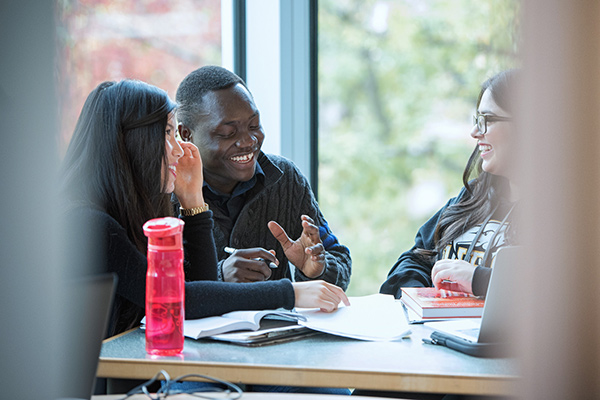
Finding your university path
Jakarta, indonesia | microbiology and immunology | bachelor + master of management.
Outstanding International Student Award-winner Angela Sunario was drawn to UBC because of its vast opportunities. When she got here, she was quick to get involved, push her limits, and find meaningful work that tied into her studies.
UBC alumnus Daniel Mundeva explains how the International Scholars program helped him achieve his goals
International Scholars Program
Earn a globally recognized degree at a top university.
A UBC degree opens doors and connects you to a vast alumni network across the globe.
Study with the brightest students in the world
You’ll join a community of engaged and supportive young leaders and study among the best and the brightest. You and your fellow Scholars will enrich UBC and the global community with your diverse perspectives, committed involvement, and innovative initiatives.
Take advantage of unique learning opportunities
You’ll have access to numerous opportunities inside and outside the classroom that will enrich your university experience.
Access dedicated advising and support
You’ll be supported by a team of dedicated International Scholars Program advisors throughout your degree, plus a network of staff from across UBC’s faculties and services who will encourage your academic, personal, and career development.
UBC Vantage One scholarships and awards
UBC’s Vantage One program is for academically strong international students whose English language proficiency does not yet meet the requirements for direct admission into UBC.
If you are a new UBC Vantage One student, you’re eligible for UBC Vantage One awards. These scholarships are awarded based on academic achievement, intellectual promise, and extracurricular or community involvement. Some of the scholarships also consider financial need. UBC Vantage One awards include:
- International Major Entrance Scholarship for Vantage One
- Vantage One Entrance Award
- Vantage One Excellence Award
Timelines, application processes, and eligibility criteria vary for the different UBC Vantage One awards.

University is a significant financial investment that will pay returns for the rest of your life.
To get a full picture of what your first year at UBC will cost – including tuition and books, meals and living costs, transportation expenses, and more – enter your details into the UBC cost calculator. You can try as many different calculations as you’d like to help get a breakdown of your first-year costs.
Scholarships and awards for current international students
UBC continues to support international students through a variety of in-program scholarships and awards. Scholarship and award amounts will vary, as will their renewability.
PhD - PhD in Theology - Durham/VST
VST has partnered with the Department of Theology and Religion at Durham University in the United Kingdom to deliver a PhD program in Vancouver. The Department of Theology and Religion at Durham is ranked third in the world by QS University Ranking. It is a department that is thoroughly engaged with the church through St John’s College and Cranmer Hall. This program, while suited to those with an academic vocation, is also suited for the clergy and other leaders who want theological depth and interdisciplinary research for the practice of ministry. The degree is granted by Durham University through the department of theology and religion.
Familiarize yourself with the Department of Theology and Religion at Durham.
Please note: Additional scholarship funding for this PhD program is available through VST up to $5,000.00 a year. A list of funds and foundations that support doctoral students in theology is available through the financial aid office .
At this time, the PhD program is only available to students who are Canadian citizens or have Canadian Permanent Resident status.
Length of Program
The international research PhD program through Durham/VST is a residential program. It is a three-year program for full-time students and a six-year program for part-time students, although extensions may be granted by successful petition. Students who wish to apply to this program must live within commuting distance of VST. The expectation for both full and part-time students is that they participate in the academic culture of the school, in the classroom as teaching assistants, in the research colloquium, and in conferences hosted by the school. This program is for permanent residents and citizens of Canada.
Useful information – requirements, costs, expectations and faculty – about the PhD program in Theology and Religion at Durham can be found online: Durham University
Residency requirements are met through meetings with VST advisors on campus, and Durham advisors online.
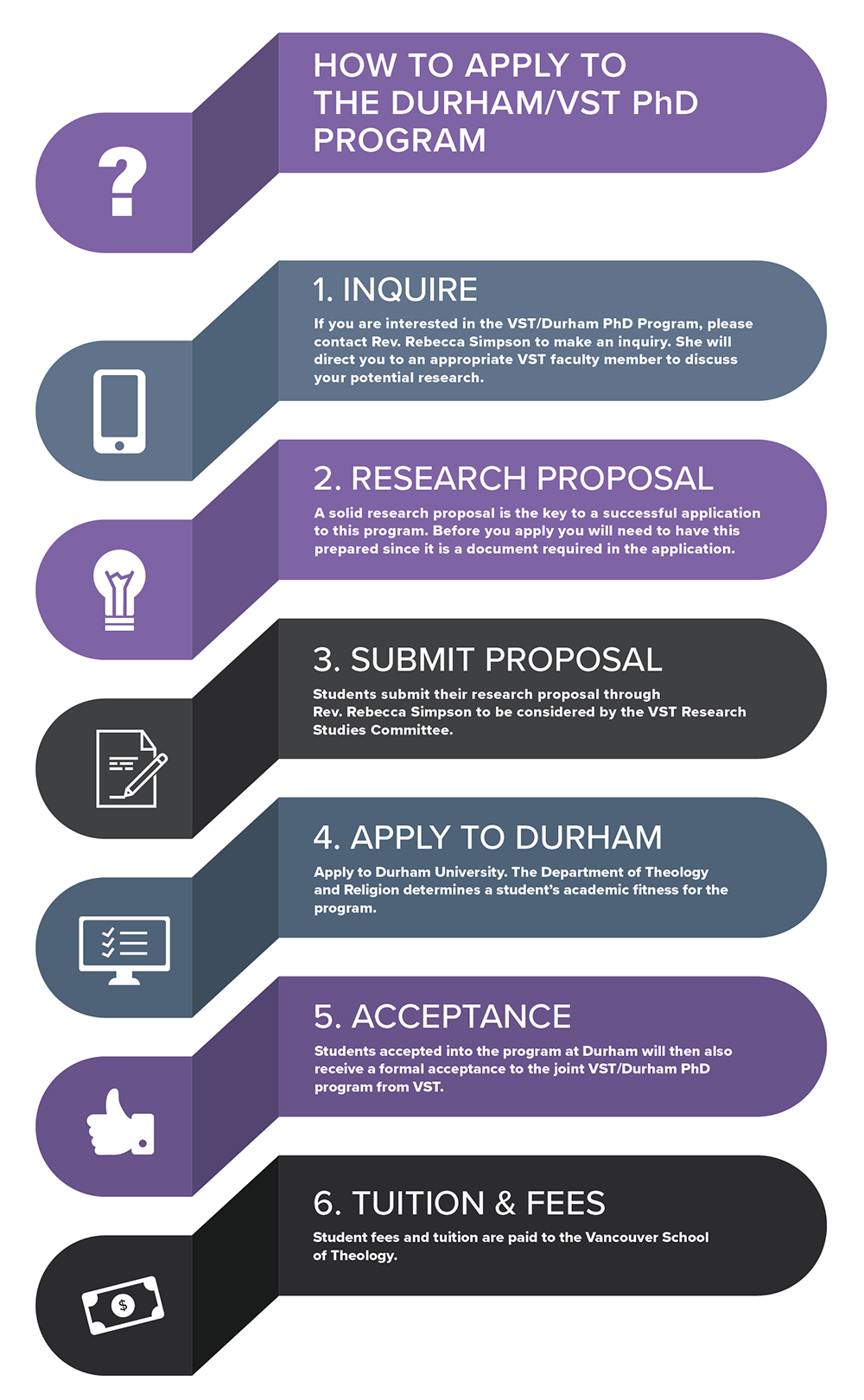
Detailed Steps
- If you are interested in this PhD Program, please be in contact with Rev. Rebecca Simpson to make an inquiry. She will be interested in the area of your research and will direct you to an appropriate VST faculty member, who is able and willing to support your potential research. Rebecca and the VST faculty member will help you be in touch with a member of the Durham faculty who is able and willing to support your research as a second director of your work. If you are unable to find a director on the VST faculty and on the Durham Faculty who will support you in the proposed research, entry into the PhD program is not possible.
- A solid research proposal is the key to a successful application to this program. Before you apply you will need to have this prepared since it is a document required in the application. Durham University provides important guidance around a solid proposal: Durham Research Proposal Guidelines . You will develop this proposal with advice from your VST director and with the input of the second director from Durham. Yes, this is all before the formal application to the VST/Durham PhD program. This informal pre-application process will serve to strengthen your application and expedite your progress on the thesis if accepted. Once you and both potential directors are satisfied that you have a strong proposal, you can move to the next step.
- Students submit their research proposal through Rev. Rebecca Simpson to be considered by the VST Research Studies Committee – chaired by Laura Duhan Kaplan. Do not apply to Durham until you have received approval to do so from The Research Studies Committee at VST. This does not imply that the student is accepted to the Durham PhD program. It is an initial step. Once you have received approval of your thesis proposal from The Research Studies Committee at VST proceed to step 4.
- The student applies to Durham University, copying their full application to VST through the VST Registrar. Durham University, the Department of Theology and Religion, determines a student’s academic fitness for the program. The application procedure is detailed here: Apply to Durham University . The application requires care and an investment of time. Durham will inform candidates of the decision on their application in four to six weeks after it is submitted.
- Students accepted into the program at Durham will then also receive a formal acceptance to the joint VST/Durham PhD program from VST. Admission at Durham and VST are necessary for this program. And they will occur in that order – first Durham and then VST will notify you of your acceptance to the program.
- Student fees and tuition are invoiced by Durham and paid to the Vancouver School of Theology. Rates for the current academic year can be found here: Full Time or Part Time . A Postgraduate Research Degree in Theology & Religion is considered Band 1. An international research PhD is expensive, and students should use research skills to secure funding through the sources available to them through Durham, VST and by using the inventory of funding sources provided to them through the financial aid office. A bursary to cover ‘student fees’ applied to their account at our school is available. Students applying to the PhD program by December 1st are eligible to access Durham’s student funding. NOTE: As the Ph.D is a program of Durham University, students are not eligible for Canadian student loans.
For further details regarding the application process, forms and dates, entry requirements and Durham based scholarships and funding see: Durham Research Programmes
Distance Learning
The PhD in Theology is a residential degree.
PhD Student Jae Weller honored with Graduate Student Service Scholarship
Congratulations to 3rd year Linguistics PhD student Jae Weller who received a well-deserved Graduate Student Service Scholarship this year! This award from the Graduate School recognizes and honors graduate students who volunteer to take on service roles in addition to their research, work, and family obligations.
Jae was nominated due to their outstanding and inspiring service to our campus as Co-President of the Linguistics Student Organization (LSO) . Jae has been a central force in the LSO since they arrived on campus, and has contributed to many projects including an innovative ASM grant which allowed undergraduate Linguistics students to travel to New York for the annual meeting of the Linguistic Society of America in 2024 , organization of a Linguistics graduate school panel , a leading role in organizing the annual Workshop in General Linguistics , and numerous social events for students of all levels. Congratulations Jae – we really appreciate the many ways that you enrich our community, and are very happy to see your efforts recognized at the campus level with this award!
- Graduate School
- Prospective Students
- Graduate Degree Programs
- Doctor of Philosophy in Chemistry (PhD)
Canadian Immigration Updates
Applicants to Master’s and Doctoral degrees are not affected by the recently announced cap on study permits. Review more details
Go to programs search
In the Chemistry department Faculty, graduate students, postdoctoral fellows, undergraduates and staff members work cooperatively in a collegial environment to tackle some of the world's most pressing problems related to energy, health and sustainability.
Research areas in the department cover a wide range of subject matter, including applied chemistry, chemical synthesis, biological chemistry, environmental chemistry, chemical analysis, materials chemistry, chemical physics and theoretical chemistry.
For specific program requirements, please refer to the departmental program website
What makes the program unique?
All students admitted into our graduate program will receive a competitive stipend. Tuition fees are paid for all qualifying PhD students, as part of complete multi-year funding packages that also include funding via Teaching Assistantships (TA) and Graduate Research Assistantships (GRA).
Outstanding facilities and resources accommodate more than 500 graduate students, postdoctoral fellows and faculty that call the Department of Chemistry home. The Department has one of the most comfortable and up-to-date research spaces in North America.
Vancouver and the UBC campus are absolutely beautiful places to live and work. I've always wanted to move to the west coast to be closer to the mountains, and so far Vancouver does not disappoint. UBC is also one of the top universities in the world, and I feel blessed to be able to study here.

Katrina Bergmann
Quick Facts
Program enquiries, admission information & requirements, 1) check eligibility, minimum academic requirements.
The Faculty of Graduate and Postdoctoral Studies establishes the minimum admission requirements common to all applicants, usually a minimum overall average in the B+ range (76% at UBC). The graduate program that you are applying to may have additional requirements. Please review the specific requirements for applicants with credentials from institutions in:
- Canada or the United States
- International countries other than the United States
Each program may set higher academic minimum requirements. Please review the program website carefully to understand the program requirements. Meeting the minimum requirements does not guarantee admission as it is a competitive process.
English Language Test
Applicants from a university outside Canada in which English is not the primary language of instruction must provide results of an English language proficiency examination as part of their application. Tests must have been taken within the last 24 months at the time of submission of your application.
Minimum requirements for the two most common English language proficiency tests to apply to this program are listed below:
TOEFL: Test of English as a Foreign Language - internet-based
Overall score requirement : 92
IELTS: International English Language Testing System
Overall score requirement : 6.5
Other Test Scores
Some programs require additional test scores such as the Graduate Record Examination (GRE) or the Graduate Management Test (GMAT). The requirements for this program are:
The GRE is required by some applicants. Please check the program website.
2) Meet Deadlines
January 2025 intake, application open date, canadian applicants, international applicants, deadline explanations.
Deadline to submit online application. No changes can be made to the application after submission.
Deadline to upload scans of official transcripts through the applicant portal in support of a submitted application. Information for accessing the applicant portal will be provided after submitting an online application for admission.
Deadline for the referees identified in the application for admission to submit references. See Letters of Reference for more information.
3) Prepare Application
Transcripts.
All applicants have to submit transcripts from all past post-secondary study. Document submission requirements depend on whether your institution of study is within Canada or outside of Canada.
Letters of Reference
A minimum of three references are required for application to graduate programs at UBC. References should be requested from individuals who are prepared to provide a report on your academic ability and qualifications.
Statement of Interest
Many programs require a statement of interest , sometimes called a "statement of intent", "description of research interests" or something similar.
Supervision
Students in research-based programs usually require a faculty member to function as their thesis supervisor. Please follow the instructions provided by each program whether applicants should contact faculty members.
Instructions regarding thesis supervisor contact for Doctor of Philosophy in Chemistry (PhD)
Citizenship verification.
Permanent Residents of Canada must provide a clear photocopy of both sides of the Permanent Resident card.
4) Apply Online
All applicants must complete an online application form and pay the application fee to be considered for admission to UBC.
Research Information
Research focus.
Applicants who are interested in the production, preparation, and application of nuclear isotopes for science and medicine may consider the IsoSiM program. Applicants who are interested in quantum materials may consider the QuEST program.
Tuition & Financial Support
Financial support.
Applicants to UBC have access to a variety of funding options, including merit-based (i.e. based on your academic performance) and need-based (i.e. based on your financial situation) opportunities.
Program Funding Packages
All full-time students who begin a UBC-Vancouver Ph.D. program in Chemistry will receive a funding package of at least $26,000 for each of the first five years of their program (contingent on satisfactory teaching and research performance). The funding package may consist of any combination of internal or external awards, teaching-related work, research assistantships, and graduate academic assistantships. In addition to this salary, Ph.D. students receive full tuition awards paid for by funds from the Graduate Student Initiative and the Faculty of Science for the first five years of the program.
Average Funding
- 116 students received Teaching Assistantships. Average TA funding based on 116 students was $7,213.
- 123 students received Research Assistantships. Average RA funding based on 123 students was $12,337.
- 8 students received Academic Assistantships. Average AA funding based on 8 students was $5,156.
- 131 students received internal awards. Average internal award funding based on 131 students was $13,384.
- 17 students received external awards. Average external award funding based on 17 students was $21,961.
Scholarships & awards (merit-based funding)
All applicants are encouraged to review the awards listing to identify potential opportunities to fund their graduate education. The database lists merit-based scholarships and awards and allows for filtering by various criteria, such as domestic vs. international or degree level.
Graduate Research Assistantships (GRA)
Many professors are able to provide Research Assistantships (GRA) from their research grants to support full-time graduate students studying under their supervision. The duties constitute part of the student's graduate degree requirements. A Graduate Research Assistantship is considered a form of fellowship for a period of graduate study and is therefore not covered by a collective agreement. Stipends vary widely, and are dependent on the field of study and the type of research grant from which the assistantship is being funded.
Graduate Teaching Assistantships (GTA)
Graduate programs may have Teaching Assistantships available for registered full-time graduate students. Full teaching assistantships involve 12 hours work per week in preparation, lecturing, or laboratory instruction although many graduate programs offer partial TA appointments at less than 12 hours per week. Teaching assistantship rates are set by collective bargaining between the University and the Teaching Assistants' Union .
Graduate Academic Assistantships (GAA)
Academic Assistantships are employment opportunities to perform work that is relevant to the university or to an individual faculty member, but not to support the student’s graduate research and thesis. Wages are considered regular earnings and when paid monthly, include vacation pay.
Financial aid (need-based funding)
Canadian and US applicants may qualify for governmental loans to finance their studies. Please review eligibility and types of loans .
All students may be able to access private sector or bank loans.
Foreign government scholarships
Many foreign governments provide support to their citizens in pursuing education abroad. International applicants should check the various governmental resources in their home country, such as the Department of Education, for available scholarships.
Working while studying
The possibility to pursue work to supplement income may depend on the demands the program has on students. It should be carefully weighed if work leads to prolonged program durations or whether work placements can be meaningfully embedded into a program.
International students enrolled as full-time students with a valid study permit can work on campus for unlimited hours and work off-campus for no more than 20 hours a week.
A good starting point to explore student jobs is the UBC Work Learn program or a Co-Op placement .
Tax credits and RRSP withdrawals
Students with taxable income in Canada may be able to claim federal or provincial tax credits.
Canadian residents with RRSP accounts may be able to use the Lifelong Learning Plan (LLP) which allows students to withdraw amounts from their registered retirement savings plan (RRSPs) to finance full-time training or education for themselves or their partner.
Please review Filing taxes in Canada on the student services website for more information.
Cost Estimator
Applicants have access to the cost estimator to develop a financial plan that takes into account various income sources and expenses.
Career Outcomes
192 students graduated between 2005 and 2013: 3 graduates are seeking employment; 5 are in non-salaried situations; for 31 we have no data (based on research conducted between Feb-May 2016). For the remaining 153 graduates:
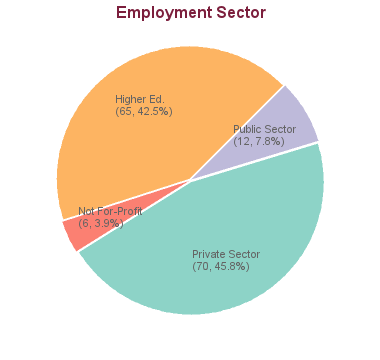
Sample Employers in Higher Education
Sample employers outside higher education, sample job titles outside higher education, phd career outcome survey, alumni on success.
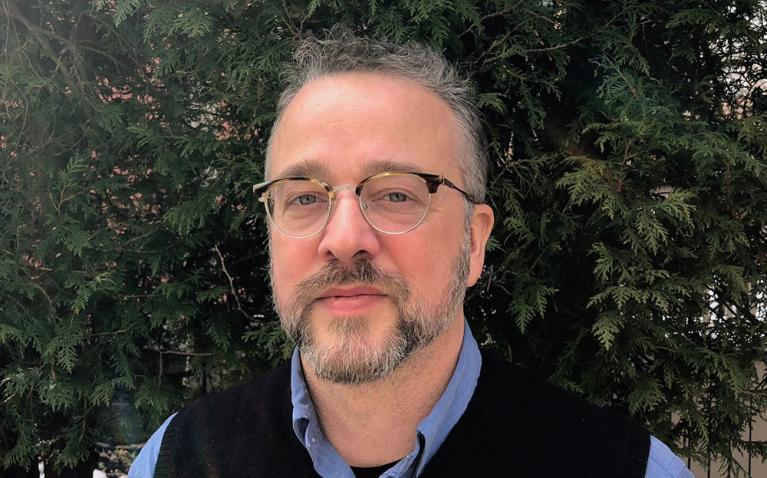
Peter Caravan
Job Title Co-Director, Institute for Innovation in Imaging and Associate Professor of Radiology
Employer Massachusetts General Hospital and Harvard Medical School
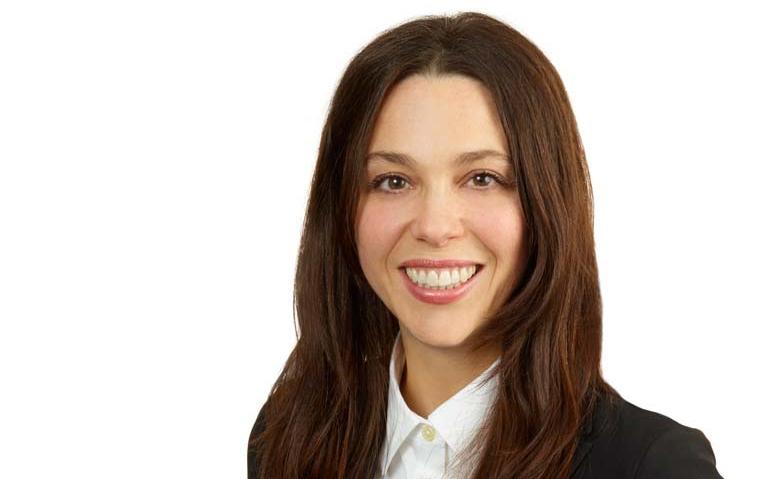
Tracey Stott
Job Title Lawyer
Employer Norton Rose Fulbright Canada LLP
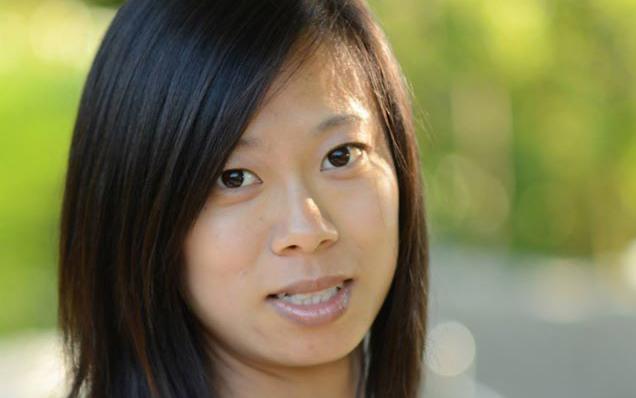
Sherry Zhao
Job Title Senior Director, Strategic Accounts & Business Development
Employer Mitacs
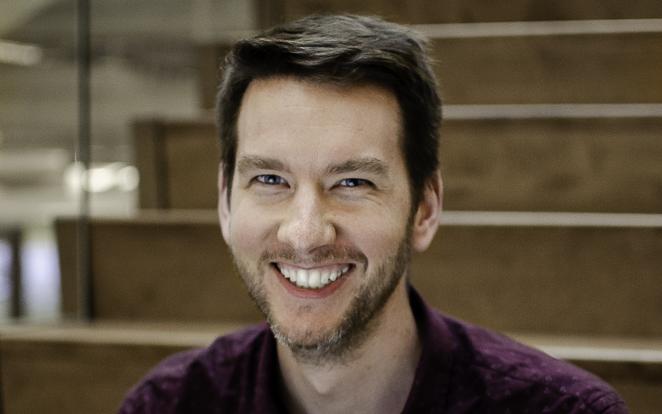
Jean Michel Lauzon
Job Title Partner Marketing Manager
Employer SAP
Enrolment, Duration & Other Stats
These statistics show data for the Doctor of Philosophy in Chemistry (PhD). Data are separated for each degree program combination. You may view data for other degree options in the respective program profile.
ENROLMENT DATA
Completion rates & times, upcoming doctoral exams, thursday, 23 may 2024 - 9:00am - room 200, monday, 27 may 2024 - 9:30am - d213, chemistry d block, 2036 main mall, tuesday, 18 june 2024 - 9:00am - room 200, tuesday, 25 june 2024 - 12:30pm - d213, chemistry d block, 2036 main mall.
- Research Supervisors
Advice and insights from UBC Faculty on reaching out to supervisors
These videos contain some general advice from faculty across UBC on finding and reaching out to a supervisor. They are not program specific.

This list shows faculty members with full supervisory privileges who are affiliated with this program. It is not a comprehensive list of all potential supervisors as faculty from other programs or faculty members without full supervisory privileges can request approvals to supervise graduate students in this program.
- Algar, Russ (Luminescent Materials; Bio/Chemical Sensing; Materials synthesis and biofunctionalization; Understanding the nanoparticle interface; New energy transfer configurations for sensing and imaging; Point-of-care diagnostic devices; Intracellular sensing)
- Andersen, Raymond (Chemicals produced by marine organisms)
- Berlinguette, Curtis (Combinatorial Chemistry; CO2 conversion and utilization; clean energy; advanced solar cells; electrochromic windows; dynamic windows; hydrogen fuels production; catalysis; robotics and automation; machine learning / artificial intelligence)
- Bertram, Allan (Atmospheric sciences; Chemical sciences; Atmosphere (Including Chemical Aspects); Physical and analytical chemistry of atmospheric aerosols)
- Bizzotto, Dan (Electroanalytical chemistry; Electrochemistry; Colloid and surface chemistry; Electrochemical Systems; Surface Characterization; Surfaces, Interfaces and Thin Layers; Sensors and Devices; Electrochemical and Fuel Cells; biosensors; electrocatalysis; fluorescence microscopy; interfacial analysis; self assembled monolayers; spectroelectrochemistry)
- Borduas-Dedekind, Nadine (Chemical sciences; atmospheric chemistry; chemical mechanisms; atmospheric ice nucleation; Biogeochemistry; mass spectrometry; Photochemistry; indoor chemistry; atmospheric aerosols; singlet oxygen)
- Brumer, Harry (Biochemistry; Chemical sciences; Genomics; Biological and Biochemical Mechanisms; biomass; carbohydrates; cellulose; Chemical Synthesis and Catalysis; Enzymes; microbiota; plant cell walls; polysaccharides)
- Burke, Sarah (Scanning probe microscopy, organic materials, nanoscale materials, surface physics, photovoltaics )
- Chen, David (Instrumentation)
- Chou, Keng Chang (Chemical physics)
- Cooke, Ilsa (Role of icy dust grains in interstellar chemistry; Constraining aromatic and carbon chemistry during star formation; Observational Astronomy)
- Dake, Gregory (Organic, bioactive, metal as catalyist)
- Gates, Derek (Inorganic chemistry, materials science, polymer chemistry, catalysis)
- Grant, Edward (Spectroscopy, molecular electronic structure, Chemical physics)
- Hariri, Amani (Biological chemistry, Integrated Biosensors, Ultrasensitive sensor platforms for low abundance molecular detection, Aptamer switches for multifunctional stimulus-responsive Nano-systems)
- Hein, Jason (discovery, design and study of new organometallic and organocatalytic reactions; investigating complex systems where multiple pathways compete, partitioning the active catalyst among many possible pathways)
- Hepburn, John (Chemical physics)
- Huan, Tao (Bioinformatics, n.e.c.; Analytical spectrometry; Metabolomics; Separation science; Cancer progression and metastasis; Human nutrition and metabolism; Liquid Chromatography-Mass Spectrometry; Machine Learning; Bioinformatics)
- Hudson, Zachary (Synthesis of materials; Functional materials in materials chemistry sciences; Organic chemical synthesis; Optical properties of materials; Luminescent materials; Organic electronics; Polymer chemistry; Organic chemistry; Organic light-emitting diodes)
- Jetter, Reinhard (Analytical Chemistry; Plant Ecophysiology; Plant Biochemistry; Molecular Genetics; Biological Chemistry)
- Krems, Roman (Theoretical chemistry, Molecular Spectroscopy, Dynamics of few- and many-body molecular systems in electromagnetic fields)
- Li, Hongbin (Biophysical chemistry, biomaterials, single molecule studies, biological, atomic force, polymer chemistry)
- MacFarlane, Andrew (Chemical physics, Electronic and magnetic properties of crystalline solids, especially strongly correlated materials such as the cuprate high temperature superconductors)
- MacLachlan, Mark (Supramolecular inorganic chemistry; Inorganic materials; Supramolecular organic chemistry; Synthesis of materials; Functional materials in materials chemistry sciences; Supramolecular Chemistry; Nanomaterials; Biomaterials; Cellulose nanocrystals; Chitin; Materials Chemistry; Inorganic Chemistry)
- Mehrkhodavandi, Parisa (Chemical sciences; Inorganic and Organometallic Compounds; Polymers; Chemical Synthesis and Catalysis; Bio-based polymers; Bioproducts; catalysis; Green Chemistry; Inorganic and Organometallic Chemistry; Polymer Chemistry and Characterization)
Doctoral Citations
Sample thesis submissions.
- Salphen and hemi-salphen macrocycles for host-guest chemistry and other supramolecular applications
- Investigating the anti-proliferative effects of somatostatin on HER2-positive breast cancer cells using biochemical methods and capillary electrophoresis
- Biosynthetic enzymes for assembly of nonproteinogenic α-amino acids piperazic acid and azaserine and heterocyclic natural product azomycin
- Chemical modifications of perovskite solar cells at interfaces
- Realizing challenging C-H functionalization reactions using a zirconium complex with an expanded coordination sphere
- Design and development of macromolecular polyanion inhibitors (MPIs) and their evaluation as therapeutics to prevent or treat thrombosis
- Heterocyclic peptide staples : from function oriented synthesis to fluorescent peptide crosslinks
- Development and characterization of dextran-functionalized nanoparticles and assemblies for applications in bioanalysis and imaging
- Exploring molecular complexes and clusters at ultra-low temperatures through spectroscopic analysis
- Catalytic synthetic designs of aminated polyolefins with tunable dynamic interactions and material applications
- Exploring extreme limits of chemical bonding and their applications in functional materials designs
- Numerical methods in quantum chemistry to accelerate SCF convergence and calculate partial atomic charges
- Viscosity of biogenic secondary organic aerosol and atmospheric implications
- Improving water oxidation with iridium catalysts
- Antibiofilm coatings with long-term activity for medical devices
Related Programs
Same specialization.
- Master of Science in Chemistry (MSc)
At the UBC Okanagan Campus
Further information, specialization.
Chemistry covers a wide range of subject matter, from synthetic organic chemistry to chemical physics and theory, including inorganic, organic, analytical, biological, physical, theoretical, nuclear, environmental, and materials chemistry.
UBC Calendar
Program website, faculty overview, academic unit, program identifier, classification, social media channels, supervisor search.
Departments/Programs may update graduate degree program details through the Faculty & Staff portal. To update contact details for application inquiries, please use this form .
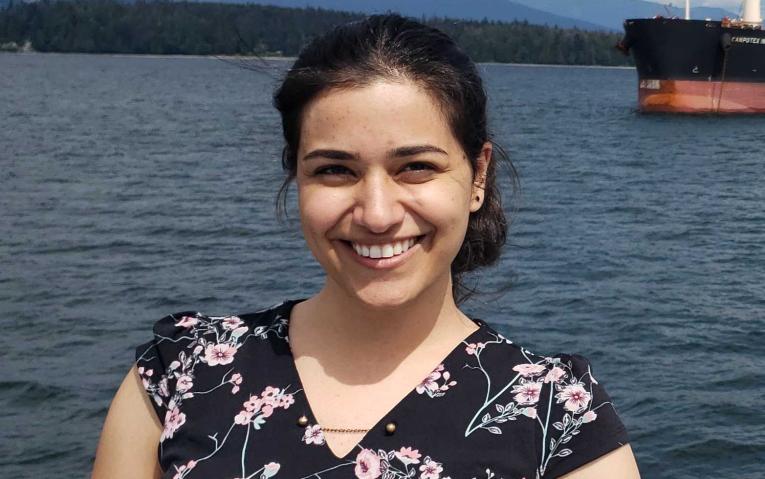
Rama El-khawaldeh
UBC has an outstanding reputation for research and academic excellence, especially in the field of chemical robotics, which aligns perfectly with my interests and career goals. The opportunity to work with Professor Jason Hein, who is a leading expert in the field, as my doctoral advisor was also a...
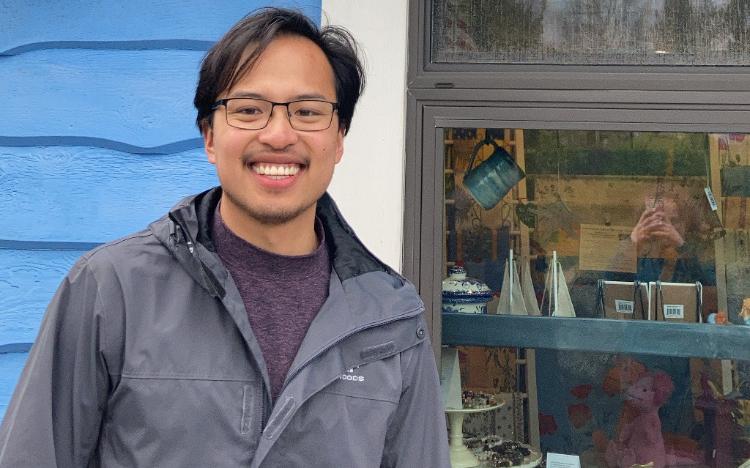
Isaiah Betinol
UBC is a world-class university and the campus is one of the most scenic in the world. The city of Vancouver is also one-of-a-kind with access to mountains and the ocean only a short distance away.
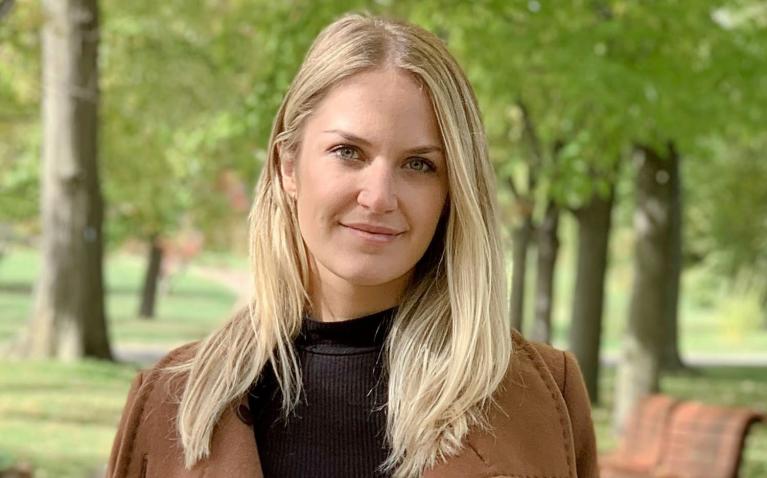
Sabrina Scott
UBC is my institution of choice not only because of its state-of-the-art research facilities and top-tier faculty, but because I am able to work for Prof. Laurel Schafer exploring green chemistry methodologies. In my work I operate at the intersection of fundamental catalyst research and applied...
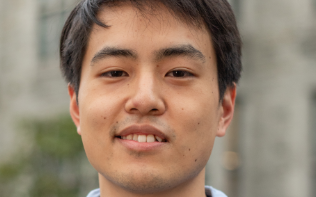
My research interest and the connection I felt with my supervisor were the most significant factors in coming to UBC. Of course, Vancouver being one of the best cities in Canada and UBC being a world-class university made the decision quite easy.

Curious about life in Vancouver?
Find out how Vancouver enhances your graduate student experience—from the beautiful mountains and city landscapes, to the arts and culture scene, we have it all. Study-life balance at its best!
- Why Grad School at UBC?
- Application & Admission
- Info Sessions
- Research Projects
- Indigenous Students
- International Students
- Tuition, Fees & Cost of Living
- Newly Admitted
- Student Status & Classification
- Student Responsibilities
- Supervision & Advising
- Managing your Program
- Health, Wellbeing and Safety
- Professional Development
- Dissertation & Thesis Preparation
- Final Doctoral Exam
- Final Dissertation & Thesis Submission
- Life in Vancouver
- Vancouver Campus
- Graduate Student Spaces
- Graduate Life Centre
- Life as a Grad Student
- Graduate Student Ambassadors
- Meet our Students
- Award Opportunities
- Award Guidelines
- Minimum Funding Policy for PhD Students
- Killam Awards & Fellowships
- Policies & Procedures
- Information for Supervisors
- Dean's Message
- Leadership Team
- Strategic Plan & Priorities
- Vision & Mission
- Equity, Diversity & Inclusion
- Initiatives, Plans & Reports
- Graduate Education Analysis & Research
- Media Enquiries
- Newsletters
- Giving to Graduate Studies
Strategic Priorities
- Strategic Plan 2019-2024
- Improving Student Funding
- Promoting Excellence in Graduate Programs
- Enhancing Graduate Supervision
- Advancing Indigenous Inclusion
- Supporting Student Development and Success
- Reimagining Graduate Education
- Enriching the Student Experience
Initiatives
- Public Scholars Initiative
- 3 Minute Thesis (3MT)
- PhD Career Outcomes
- Great Supervisor Week

IMAGES
VIDEO
COMMENTS
Four Year Fellowships may be held by domestic and international students. In general, the fellowships are offered to students beginning their first year of full time PhD, DMA, or MDPhD studies, but may be offered to continuing students. 4YF funding may be offered for up to four years, but the duration of funding may be less in some circumstances (please refer to the 4YF Guidelines for details).
The Four Year Doctoral Fellowship (4YF) program will ensure UBC's best PhD, DMA, and MDPhD students are provided with financial support of at least $18,200 per year plus tuition for up to four years of their Doctoral studies. This program allows UBC to continue to attract and support outstanding domestic and international Doctoral students ...
Tuition. Tuition for the PhD program is about $5,400 CAD per year for Canadian students, and about $9,500 for international students. Student fees are about $1,100 CAD per year (fees are in addition to the tuition). Tuition and fees amounts are divided into three approximately equal payments per year, due in September, January, and May.
CIHR Scriver MD/PhD Scholarship 2010 - Julia Pon 2005 - Fiona Young. Izaak Walton Killam Memorial Pre-Doctoral Fellowship 2021 - Andy An 2017 - Michael Skinnider 2016 - Jordan Squair 2015 - David Twa. MD Undergraduate Program. Faculty of Medicine. 317 - 2194 Health Sciences Mall. Vancouver, BC Canada V6T 1Z3. Tel 604 822 2421 ...
G+PS provides financial aid through scholarships, tuition awards, and scholarship top-ups. ... PhD students receive a minimum financial commitment of $22,000 once admitted to the program. We strongly encourage all applicants of the Vancouver School of Economics graduate programs to seek external (non-UBC) sources of support.
Graduate. Graduate students at the Vancouver School of Economics benefit from our small cohort sizes. Our students develop strong supervision relationships with our high-quality faculty and have extensive opportunities for joint research projects. Our graduate programs offer diverse specializations, and students enjoy a well-organized program ...
Students enrolled in a full-time PhD program are assured a Minimum Funding Package for the first four years of full-time study. Funding can be used towards expenses related to the academic program (e.g., tuition, books) as well as general living expenses. Minimum funding is an annual commitment spanning three academic terms per year for four ...
Vancouver Campus. Ponderosa Commons North (Oak House) 6445 University Boulevard. , Tel 604 822 5374. Fax 604 822 4244. Email [email protected]. The PhD in Educational Studies is a research-oriented doctoral program for students interested in any of the study areas offered in the department.
PhD Program. On average, it takes four to five years to complete the PhD program (after the MA) and requires full-time academic year residency until the attainment of candidacy. At least 12 credits of coursework are required, and the details of required courses vary by research area. In addition to courses, doctoral students are required to ...
Over 10,000 foreign students coming from over 80 countries choose to study in Vancouver (including Australia, China, England, France, Italy, Korea, Mexico, The Netherlands, New Zealand, Vietnam, and U.S.), enrolling in a wide range of programmes. Vancouver is the third largest city in Canada, located in the South-Western corner of the coastal ...
The Ontario Graduate Scholarship. The Ontario Graduate Scholarship (OGS) is open to domestic and international students pursuing a graduate degree (including PhD) at an Ontario university. The scholarship provides $15,000 per year for up to two years, with one-third of the funding provided by the university.
2. University of Waterloo Scholarships. The University of Waterloo is a public research university in Canada and is ranked eighth as the Best Global Universities in Canada, according to US News. The university offers scholarships for all international students in undergraduate, master's, and PhD programmes.
Students receive their IMES when they enter their first year at UBC, and the scholarships are renewable for up to three additional years of study. The number and level of these scholarships awarded each year vary, depending on available funding. For the 2024/2025 academic year, IMES awards will be valued at $10,000 - $20,000/year.
Additional scholarship funding for this PhD program is available through VST up to $5,000.00 a year. A list of funds and foundations that support doctoral students in theology is available through the financial aid office. At this time, the PhD program is only available to students who are Canadian citizens or have Canadian Permanent Resident ...
We have 0 PhD Projects, Programmes & Scholarships in Vancouver. There are currently no PhDs listed for this Search. Why not try a new PhD search. Find a PhD is a comprehensive guide to PhD studentships and postgraduate research degrees.
Congratulations to 3rd year Linguistics PhD student Jae Weller who received a well-deserved Graduate Student Service Scholarship this year! This award from the Graduate School recognizes and honors graduate students who volunteer to take on service roles in addition to their research, work, and family obligations.
Tuition fees are paid for all qualifying PhD students, as part of complete multi-year funding packages that also include funding via Teaching Assistantships (TA) and Graduate Research Assistantships (GRA). ... Scholarships & awards (merit-based funding) ... Admissions data refer to all UBC Vancouver applications, offers, new registrants for ...
Albany, NY (June 4, 2019) - The School of Education at the University at Albany announces the creation of The John Murray and Ann Marie Murray MA '75, MS '98, PhD '02 Community College Leadership Scholarship to support the development of future community college leaders.. Dr. Ann Marie Murray, Vice Provost and Chief of Staff for Academic Affairs at the University at Albany, established ...